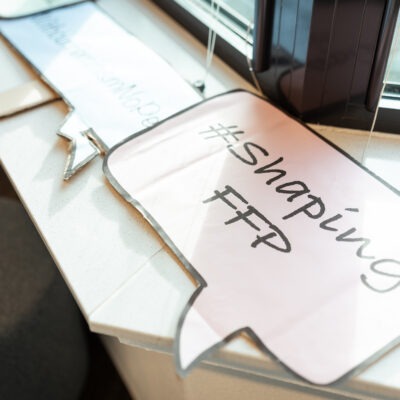It’s clear that COVID-19 is in no way a leveller.
There are a lot of inequalities across countries but also within countries with some groups more affected by COVID-19 and its consequences than others.
On Wednesday, during our third global Youth Power Solidarity Meetup, 100 young people from all around the world came together to talk about this issue.
We discussed inequality in terms of access and quality of health services, in terms of ability to stay safe, to make a living, to be connected online, and in terms of stigma and vulnerability and much much more.
The meet-up was hosted by Amika George (UK), Ines Yabar (Peru) and Jevanic Henry (St Lucia) from our Youth Power Panel. It was an entirely youth-led discussion with lots of great insights shared.
The majority of those on the call said that inequalities have increased as a result of COVID-19 and that they were most worried about economic inequalities.
Here’s a snapshot of what was said*:
As per the World Health Organisation guidelines people are supposed to wash their hands regularly but in northern Uganda where I come from the majority of people have no access to clean water. So how are they supposed to manage COVID19?
Emmie, Uganda
There is inequality in the education system because people don’t have the same access to technology that others do and unfortunately they are all expected to write the same exam.
Suwilanji, Zambia
Misinformation is a problem and there is mistrust towards institutions, and violence towards medical staff, because a lot of people feel they don’t know what’s going on. People that have been historically neglected are not getting the right information.
Irlanda, Mexico
Low-income households can’t afford the technology to access resources online for information and education.
Dharm, India
In the past 3 months, we have seen high rates of teenage pregnancies and abuse. As young leaders and young people, we have to continue advocating for the rights of young girls to our leaders so that children can get the social protection they deserve.
Maggie, Tanzania
Adolescents live with their parents and these adolescents would want to access certain services like contraception without the knowledge of their parents and their guardians but because of lock-down they cannot.
Blessing, Zimbabwe
Feeding programs in schools have been stopped by the pandemic and measures such as lock-down… But many children, especially from rural areas and farming settlements, rely on the feeding program, hence a situation where most children are living in hunger during the lock-down. Also, churches and homes which feed the less privileged are closed. This is widening economic and social inequalities in Zimbabwe.
Many households are not online or don’t have the hardware like computers to get online either. People are having to make tough choices between which of their children gets an education. Access to reproductive health education is minimal.
Brenda, Zimbabwe
*If you are interested in following up on any of these stories contact: comms@restlessdevelopment.org




